#angevin empire
Text
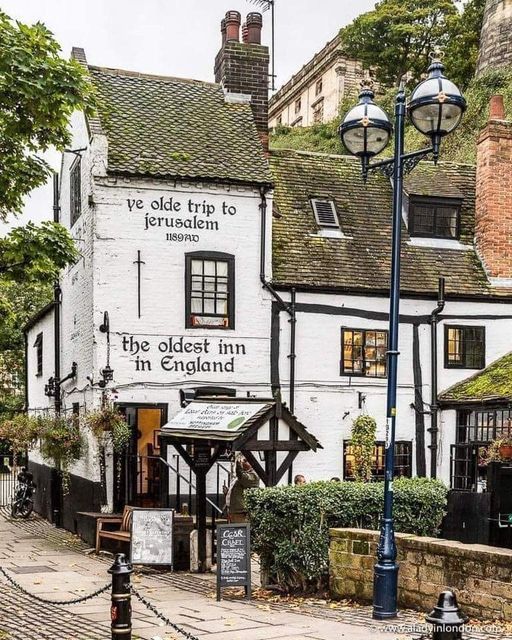
King Richard I met with his knights here to launch the Third Crusade
#Ye Olde Trip to Jerusalem#Nottingham#Third Crusade#UK#Richard the Lionheart#English pubs#oldest inn#crusaders#Plantagenets#Angevin Empire#Christendom#1189 AD
433 notes
·
View notes
Text

Matilda, Eleanor, and Joanna - retrospring request for the Angevin daughters
#Angevin empire#Plantagenets#Matilda of Saxony#Eleanor of England queen of Castile#Joanna of Sicily#12th century#medieval#medieval women#requests#my art
124 notes
·
View notes
Photo
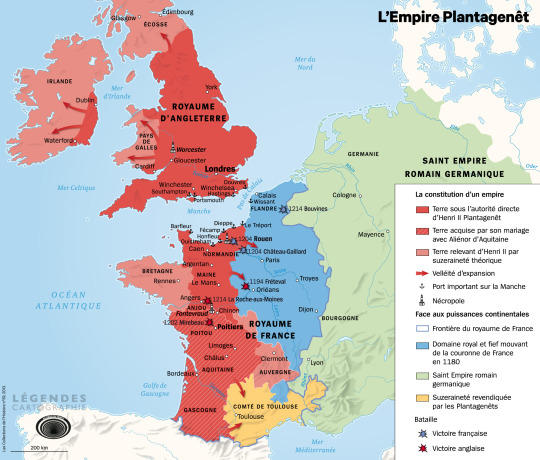
The Angevin Empire, 12th century.
by @LegendesCarto
86 notes
·
View notes
Note
I'm Henry III at the time of my coronation. What can I do to ensure the English monarchy remains as strong as its counterparts on the continent relative to the nobility?
In general, I would say "learn how to delegate better," and "develop structures of legitimization."

Henry's main problem was that he was a habitual micromanager, but didn't have the chops for governance or warfare that his grandfather had. This was a really bad combination for someone who came to power in the middle of the First Baron's War.
During his minority, Henry's ministers like William Marshal and Herbert de Burgh managed to win the First Baron's War and push the French out of England. Then Henry reached his majority. In 1228, the Normans, Angevins, and the Duke of Brittany offered to support Henry against the 12-year-old Louis IX of France - but Henry squandered the opportunity with an ineffectual campaign that accomplished nothing. Then Henry pissed off the rest of the barons again by promoting the Poitevin faction at court.
After that, Henry spent the rest of his reign ruling without ministers - and he was bad at it, especially when it came to enforcing royal charters, distributing patronage widely, and evenly applying royal justice. This - along with Henry's complete defeat in the Saintonge War and his incredibly expensive campaign to win his son Edmund the throne of Sicily - alienated Simon de Montfort and the Savoyard and English barons, leading to his overthrow in 1259, and the Second Baron's War in 1263.
Things didn't really turn around until Edward grew old enough to take the reins of power - because Edward actually did have the military and political skills his father lacked.
21 notes
·
View notes
Text


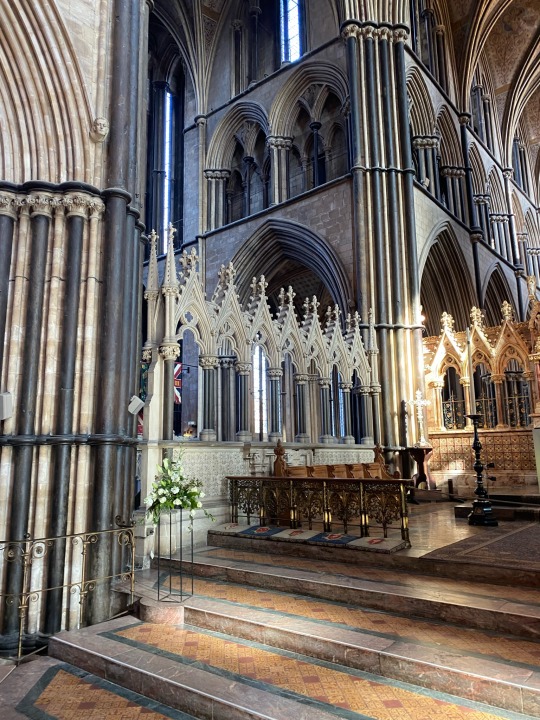

the tomb of king john // worcester cathedral
#plantagenets#angevin empire#12th century#king john#angevins#a BEAUTIFUL. place. truly.#bless my friends for coming with me and spending hours there as i literally just sat and thought#(this is from my february trip) but i will probably go back this year#so amazing and .... magnificent tbh#woke my friends up from a hangover so we were FIRST IN BABY#john my beloved. i adore you. so much.
79 notes
·
View notes
Text
“Few figures experienced such a dramatic and disastrous turn of the wheel of fortune as did Eleanor of Aquitaine in the autumn of 1173, when she fell from her place as Henry’s assistant in ruling his collection of territories to detention as his prisoner in Chinon Castle. Eleanor inspired and participated in her sons’ rebellion of 1173–74 that became a widespread revolt against Henry. Spreading throughout his domains, it was the greatest challenge to his authority that he would face until his last days. The record of the royal couple’s sons for rebellions against their father and for fighting each other is almost unequaled in medieval history, and the queen’s active part in a revolt against her royal husband was near unimaginable to contemporaries. Writers ever since have accused the English queen of fomenting her sons’ rebellion, and the family’s troubles are still so notorious that they are a subject for films and plays. The chronicler Ralph Diceto writing not many years after the revolt admitted that young Richard, count of Poitou, and Geoffrey of Brittany in fleeing to Paris to join their elder brother in 1173 were “following the advice of their mother Eleanor.” He then listed over thirty instances of sons rebelling against their parents, but was unable to specify a single case of an earlier queen rebelling against her royal husband.
The dysfunctional character of the family life of Eleanor of Aquitaine, Henry II, and their sons was no secret to their contemporaries. One late twelfth-century monastic writer likened the English royal family to “the confused house of Oedipus,” and another commented that “this father was most unhappy in his most famous sons.” Courtiers at the English royal court could only explain the intense hostility by recalling an Angevin legend of the Plantagenet family’s diabolical descent, having as ancestor a demon-countess of Anjou. In fact, Henry was largely an absentee father during his sons’ early years, and following aristocratic custom, he was content to leave their upbringing in others’ hands. Once his sons became adolescents, they resented their father’s refusal to share power with them, denying them authority over the lands that he had designated for them in various partition schemes.
- Ralph V. Turner, “Eleanor of Aquitaine: Queen of France, Queen of England”
31 notes
·
View notes
Text
The beauty of old movies and their feral babygirls
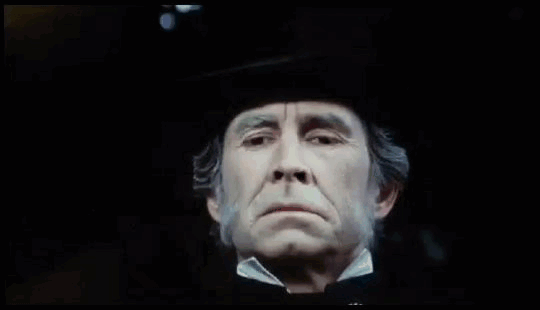
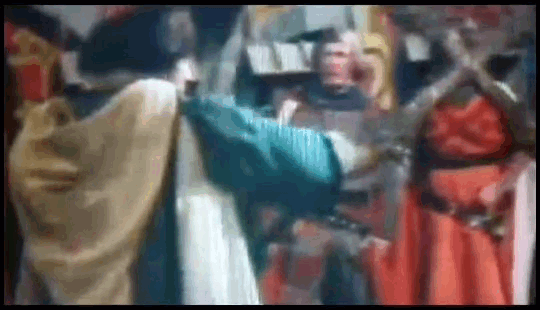
#valvert#les miserables#les mis#javert#jean valjean#les miserables 1978#the devil's crown#thomas becket#angevin empire#history
15 notes
·
View notes
Photo
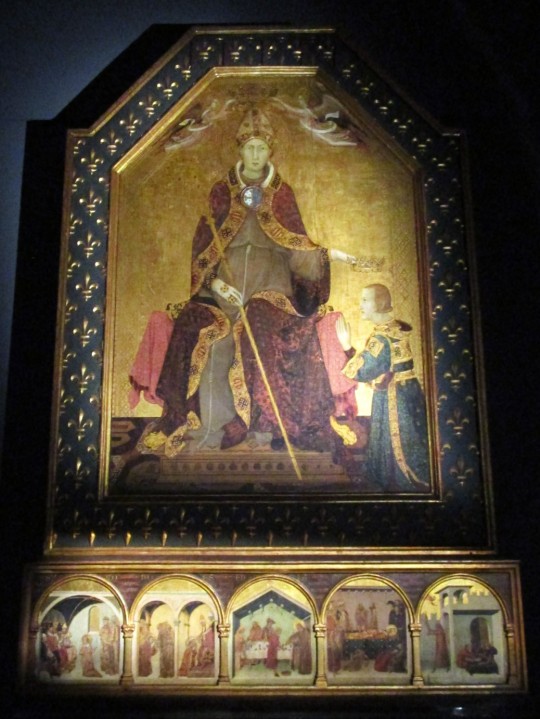
Saint Louis of Toulouse, 1317, tempera and gold on panel, by Simone Martini
Museo e Real Bosco di Capodimonte, Naples
This ten-foot-tall altarpiece is the most famous work surviving from the Angevin court of Naples. This article explains its significance.
Photo by Charles Reeza
9 notes
·
View notes
Text
If I was John Lackland I would simply not lose the Angevin homeland to the Capetians
0 notes
Text
Tfw a documentary constantly brings up something problematic about the subject but like. It’s literally irrelevant to the thesis. And there’s no way to complain about it without sounding awful.
#yes I am highly aware that Medieval English kings married young and married close of kin#literally all of Europe was doing the same thing#but this doco was billed as an overview of the political and military factors that led to the loss of the Angevin empire#you can tell me about the strategic marriages without constantly saying they’re kids#flying false colours ;; ooc
4 notes
·
View notes
Text

Richard the Lionheart and Berengaria of Navarre
#richard the lionheart#berengaria of Navarre#my art#12th century#historical illustration#Plantagenets#Angevin empire#He’s itching to get back on the horse and demolish some more castles
130 notes
·
View notes
Text
If your lands look like this

And your most powerful vassals’ lands look like *this*

You might be in trouble!
#I’m working on a post about medieval law making 101#but I’m getting sidetracked by how nuts the Angevin empire was
0 notes
Note
Why did the English kings have to do homage to the French kings for Normandy etc? Why could they not just annex those territories into England? During Henry II's reign, at least, it seems like they had the ability to thwart France's efforts to keep them in the country.
That's a misreading of Henry II's reign - Henry did homage for various territories at various times.
The issue is that the English Kings held Normandy et al. through French titles of nobility - they were Dukes of Normandy, Counts of Anjou, etc. In order to hold these titles under French laws, they were supposed to do homage to the King of France in that capacity.
How much that homage was symbolic rather than practical depended a lot on the relative strength of the two kings at the time - so for example quite a few treaties between the English and the French had clauses regarding which provinces the English king had to do homage for and which they didn't, which were recognized as having English overlordship and which French, and so forth.
28 notes
·
View notes
Text
had a dream someone had edited the defunctland "a powerful rat named charles entertainment cheese" into a sentence mix that was something like
a powerful pppppppprat named charles [long audio pause the exact length of "entertainment cheese"] [the fade in is charles windsor] [a bike horn remix of god save the king starts playing] [wilhelm scream] [charles gets whacked in the head by a map showing a united ireland, independent scotland, and for whatever reason the angevin empire's french holdings]
4K notes
·
View notes
Text
googling cat names like: seraphim name lists. ancient sumerian names. places that appear in the bible. zoroastrianism. roman emperors. russian authors. famous freemasons. top 100 names of the angevin empire.
#casting a wide net here#txt.me#ok i dont need to roman emperor list i know my guys. octavian and caracalla top candidates#just me and boy gethsemane over here
820 notes
·
View notes
Photo

Medieval Brittany, 9th-14th century
« Atlas historique de la France », Les Arènes, 2020
by cartesdhistoire
The Brittany peninsula experienced an influx of people in the 6th century, including invaders from England. An independent Brittany emerged amidst the fragmentation of the Carolingian Empire and Viking raids. Nominoë, appointed representative of the emperor, established his sovereignty after defeating Charles the Bald at the Battle of Ballon in 845. His son, Erispoë, became king of Brittany in 851. Armorica became a duchy in 939 but remained de facto autonomous, under the influence of the Plantagenets (1148-1203) and then the Capetians (1203-1341). Brittany became a duchy-peerage of the Kingdom of France in 1239. In 1491, Duchess Anne married King Charles VIII of France, initiating a process that culminated in the Edict of Union definitively attaching Brittany to the kingdom in 1532.
Breton is spoken west of a Plouha-Loudéac-La Roche-Bernard-Batz line, which has remained relatively stable over time. From the 9th century, the entire eastern area of Brittany spoke Gallo, an Oïl dialect related to Norman and Angevin. This region includes Dol, the seat of the archbishopric until 1199, and cities such as Nantes and Rennes, where the States of Brittany convened from 1352.
The administrative language of Brittany was not Breton but Latin. French began to appear in the 1240s and became widely used between 1250 and 1280, a trend observed in other French regions during the same period. From the mid-13th century, counts of Champagne favored French for their feudal affairs. The Count of Blois definitively abandoned Latin in favor of French from 1267. The Dukes of Burgundy extensively used the vernacular language during the second half of the 13th century, with French becoming their exclusive language from Duke Eudes (1315-1349). Paradoxically, French only became the dominant language of the Chancellery of the kings of France later, under Philip VI (1328-1350).
77 notes
·
View notes